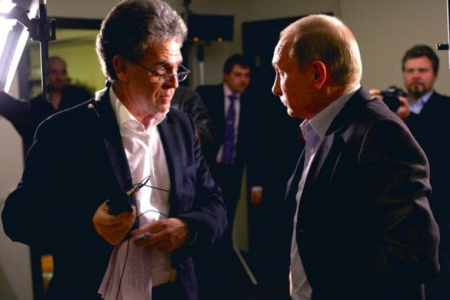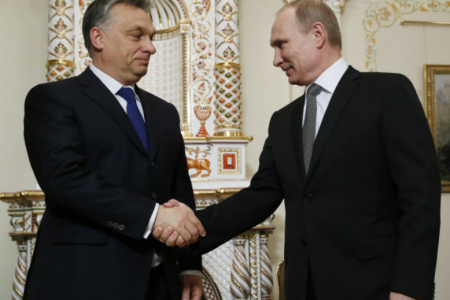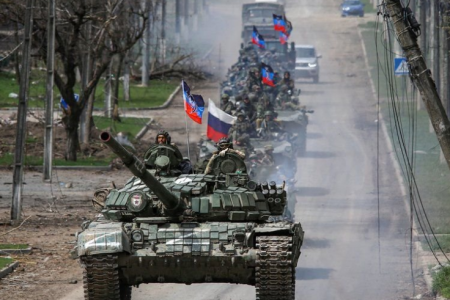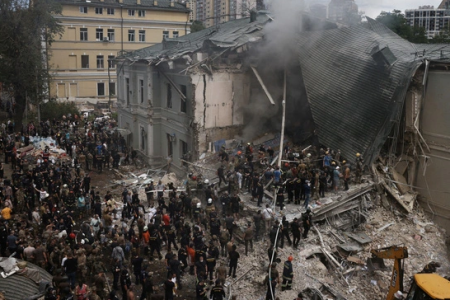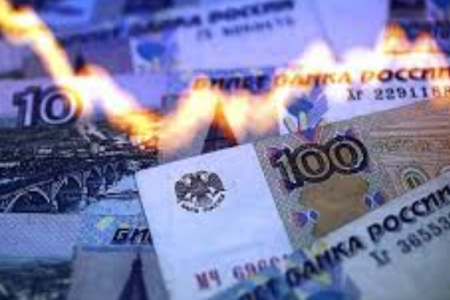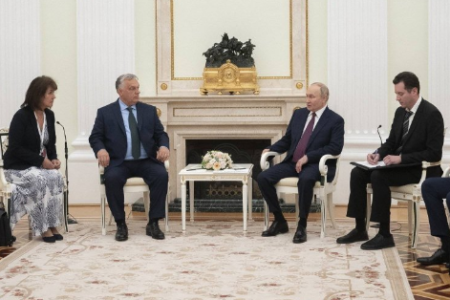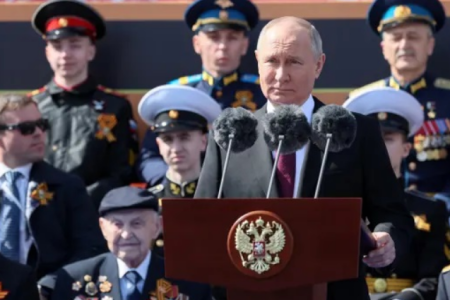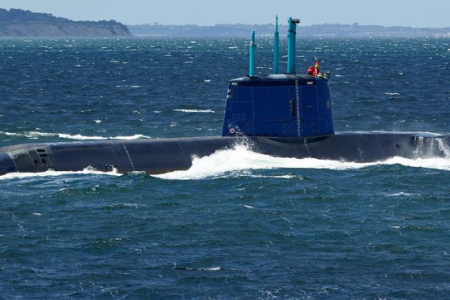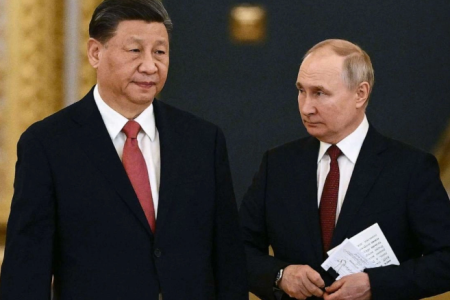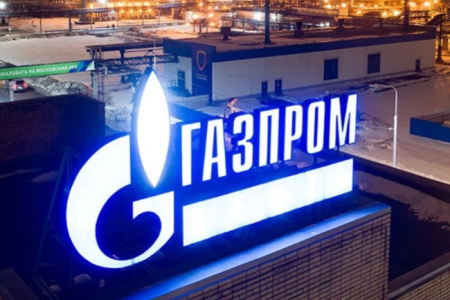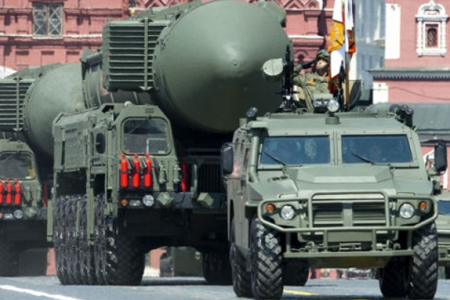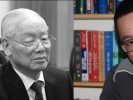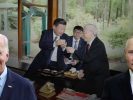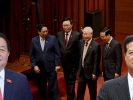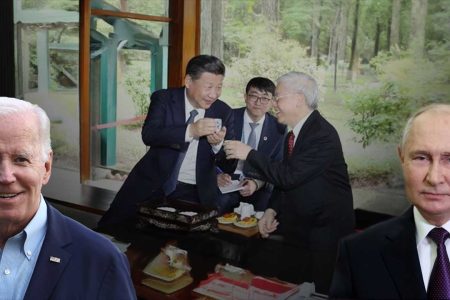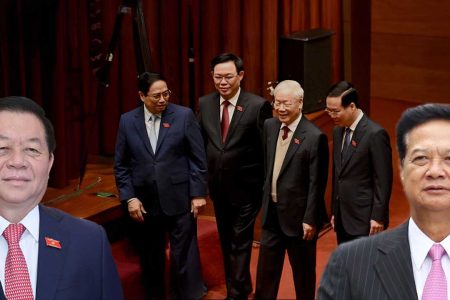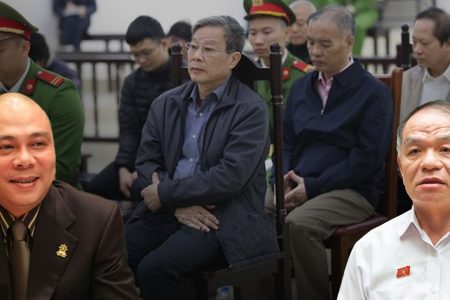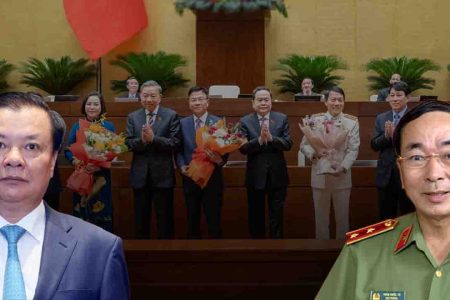
The relationship between Vietnam and the US has recently made great changes. Next week, the US Secretary of Defense will visit Vietnam. US Vice President Kamala Harris will visit Vietnam from August 15-17, 2021. This will be Kamala Harris’ first foreign trip since serving as vice president of the United States.
The consecutive visits of senior White House officials to Vietnam shows that Vietnam’s position is increasingly valued in the foreign policy of the US. Many will be surprised at the growing closeness between the two countries that were former enemies. The development of Vietnam-US relations has attracted a lot of attention from observers, especially from China.
In April, two authors Derek Grossman and Paul S. Orner published a study on the attitude of Chinese scholars towards the Vietnam-US relationship. The study is based on annual reports from the Chinese Academy of Social Sciences (CASS), a strategic think tank affiliated with the State Council of China. These sources represent the opinions of leading Chinese experts in this field. The main content of this study can be summarized as follows:
As the strategic rivalry between the US and China continues to heat up across the Indo-Pacific region, mid-tier countries like Vietnam are increasingly feeling pressured to choose between America or China. Not only is China a much more powerful neighbor to the north, China was once Vietnam’s closest friend but also its biggest enemy. The US is the country that supports Vietnam the most in dealing with challenges from China, and is also the country that is still rebuilding mutual trust with Vietnam after the Vietnam War. As a country that had a negative experience of alliances during the Cold War and implemented a policy of non-alignment, Vietnam would probably choose not to take sides with these two powers. However, China’s assertive attitude in the East Sea (South China Sea) has led Vietnam and the US to strengthen security cooperation.
The perspective of Chinese scholars on Vietnam’s foreign policy towards the two great powers of the US and China in recent times can be divided into three phases.
The period from 2005-2009: Vietnam stands firm
This time around, China is relatively optimistic that its influence over Vietnam outweighs that of the US for three main reasons. First, Chinese analysts believe that Sino-Vietnamese tension is only a minor issue. Most of them believe that the two countries can solve the issues surrounding the delimitation of land boundaries and maritime sovereignty through dialogue and exchange. Second, the clear purpose of political reform in Vietnam is to promote economic growth, and although Chinese analysts have noticed increased cooperation between the US and Vietnam, efforts seem to focus mainly on the economic sector to ensure that Vietnam can access the market and the World Trade Organization (WTO). Third, Chinese analysts find that Vietnam is not interested in containing or balancing China. As Vietnamese diplomats work to resolve longstanding strained relations with the US and other Southeast Asian countries, Chinese analysts say Vietnam will not align itself with any other country, the strategy that tied Vietnam’s interests to the interests of a Soviet Union that eventually collapsed.
Although security ties have not grown at the same rate as economic ties, Chinese analysts have noticed that security cooperation between Vietnam and the US has reached a certain extent.
However, Chinese analysts have little reason to believe that Vietnam-US security relations are improving significantly. The view that Vietnam will abandon the defense policy of “Three Nos” – not participating in military alliances, not allowing foreign countries to set up military bases on Vietnamese territory and not aligning with this country to fight the country other – seems to be unfounded.
To China watchers, this proves that Vietnam’s motives are mainly economic, and Hanoi does not want to become too dependent on any one big country.
2009-2013 period: China challenges its relationship with Vietnam
During this period, Vietnam-China relations had initial crises. This started in May 2009 when China sent a note to the United Nations Commission on the Limits of the Continental Shelf a map showing the “cow’s tongue line.”
At this time, Vietnam realizes that China will not for the sake of “friendship” with Vietnam de-escalate claims such as the “cow’s tongue line” which accounts for nearly 90% of the South China Sea, but based on historic rights, not International law.
Because of China’s increasingly assertive attitude in the region, in the early 2010s, Vietnam increased its procurement of military equipment, especially after China’s occupation of Scarborough Shoal in the Philippines in 2012. Vietnam also began to strengthen surveillance, patrol and power projection capabilities in the South China Sea.
Chinese analysts believe that Vietnam is capable of conducting low-intensity activities to protect its maritime interests, even though such activities cannot in fact help Vietnam counterbalance China. The Vietnam-China relationship is both cooperative and competitive. The same is true of Vietnam-US relations. The security cooperation between the US and Vietnam has been strengthened, but it is still limited by the fundamental conflicts in political culture between the two countries. After Secretary of State Hillary Clinton’s visit to Hanoi in 2010, China observers noted that continued US pressure on human rights and democratic reforms, along with remaining issues from the Vietnam War, has prevented Vietnam from turning to the US, even amid escalating Sino-Vietnamese tensions.
Period 2014-2021: Tensions between Vietnam and China in the South China Sea
From 2014 to now, there are two general statements that dominate China’s analysis of Vietnam’s foreign policy orientation. Firstly, the oil rig crisis in 2014 is considered a major turning point in bilateral relations and is perhaps the first sign that Vietnam is willing to accept diplomatic and economic harm in dealing with China’s actions in the South China Sea. Second, Vietnam continues to procure modern military equipment, much of which is clearly aimed at enhancing its maritime surveillance and operations capabilities.
However, contrary to Beijing’s optimistic assessments in the 2000s, Vietnamese diplomacy is not simply a means of serving economic goals. Vietnam is also reaching out to other countries to strengthen security cooperation and meet its needs for training and equipment to modernize its military. However, Chinese analysts generally believe that the economic situation and capacity gap between Vietnam and China will continue to prevent Vietnam from directly challenging or maintaining a balance with this country. Bilateral trade in 2015 reached more than $66 billion and by 2020 exceeded $100 billion, in which, Vietnam’s manufacturing industry is especially dependent on Chinese equipment and machinery. Chinese analysts also recognize that Vietnam is actively cooperating with other countries to contain China’s influence in the South China Sea. This means that Vietnam will react to any infringement of its interests.
Now, Chinese analysts seem to have accepted the fact that Vietnam will continue to balance its relations with China and the US. They recognize that the nature of territorial disputes in the South China Sea will force Vietnam to approach the US and its partners in the region. Furthermore, these relationships will extend from the economic sector to the security sector. However, Chinese analysts still believe that Vietnam’s geopolitical situation remains essentially unchanged. According to them, Vietnam-US relations in the near future will generally continue to be closer. However, for economic and geopolitical reasons, Vietnam cannot ignore the importance of Chinese trade and investment. Moreover, Vietnam will not be the focus of the US’s rebalancing strategy to Asia, but will only have a certain position and role in the US Asia-Pacific strategy. In the near future, the relationship between the US and Vietnam is unlikely to have fundamental changes.
In recent years, China must have grown worried after its actions in the South China Sea prompted Vietnam to seek closer security ties with the US. However, Chinese analysts continue to argue that Vietnam and the US can only cooperate to a certain extent due to geopolitical realities and because the two countries do not have common ideologies and values. For them, the economic relationship with China is so important that Vietnam cannot risk fracturing the bilateral relationship and there is no way to escape the fact that the two countries share a border. As Vietnam-China trade dominates Vietnam-US trade and there is no reason to believe that this trend will change, China is likely to continue to play an increasingly important role in Vietnam’s economic policy. Also according to Chinese observers, it is difficult to imagine a Vietnam that does not depend on the Chinese economy.
Will Vietnam “stay still” or will it change?
Such a view of the possibility of developing Vietnam-US relations in Vietnam’s foreign policy shows China’s “confidence” in Vietnam. It is Vietnam’s great dependence on China that has led to such a reason for China to be “assured” about Vietnam. In March, while receiving Chinese Defense Minister Wei Fanghe, Vietnamese President Nguyen Xuan Phuc affirmed that “will not join other countries against China.”
A Vietnamese diplomat commented: “If you want to have peace, you must maintain good relations with China, but if you want to develop, you must promote relations with the US.” Many people believe that pressure from China makes Vietnam afraid to promote relations with the US, but from the Chinese side, it is unlikely that they are too concerned about the development of Vietnam – US relations. Therefore, the obstacle may lie in the thinking of Vietnamese leaders, not from elsewhere.
Thoibao.de (Translated)



